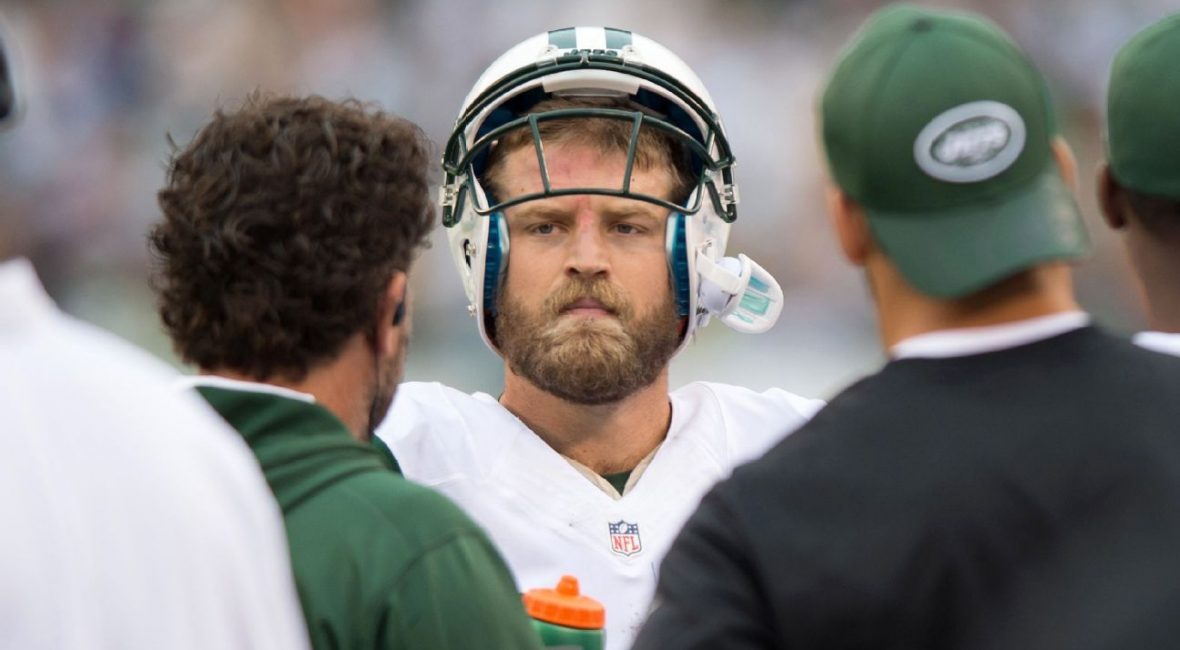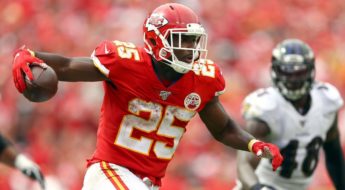As Ryan Fitzpatrick's contract voids, the Jets can reflect on a painful lesson

To say it’s the end of an era is a bit much, but it’s definitely the end of something.
Something that was wonderful for a year, but went horribly wrong after that.
Per the terms of his agreement with the New York Jets, Ryan Fitzpatrick’s contract automatically voids five days after the Super Bowl … and that means Friday. Fitzpatrick’s two-year run with the team is over and, as the quarterback acknowledged late in the season, there’s virtually no chance of him re-signing.
So what’s the major takeaway from Fitzpatrick’s time with the Jets? First and foremost, you’d like to think the team learned a hard lesson about negotiations and the importance of team-building in the offseason.
The Jets weren’t wrong for wanting to re-sign Fitzpatrick, a free agent after the 2015 season. After all, he won 10 games in 2015 and set the franchise record with 31 touchdown passes in his first season with the team. No, their mistake was how they handled the negotiations.
Instead of drawing a line in the sand, giving him a take-it-or-leave-it offer, the Jets let it drag out through free agency … through the draft … through minicamp … all the way to the eve of training camp. It bordered on ridiculous because the Jets wanted him, he wanted them and there was no third-party threat — i.e., a team interested in Fitzpatrick or another quarterback that interested the Jets.
Fitzpatrick versus the Jets became a huge distraction, one of the biggest stories in the NFL. It swallowed up the team, causing unrest in the locker room. At one point, receivers Eric Decker and Brandon Marshall reportedly skipped a few voluntary workouts as a show of support for Fitzpatrick.
The offseason matters, even for an old pro like Fitzpatrick. It’s all about building chemistry in the locker room, in the weight room and on the field.
I remember something Bill Parcells said back in 1999. Vinny Testaverde was coming off after a brilliant year and was planning to spend the offseason at his home in Tampa, Florida, where he trained in a state-of-the-art fitness room on his property. Parcells demanded that he work out with the team, claiming it was important for the Jets’ leader to be among his teammates. The quarterback relented. As it turned out, Testaverde, the part-owner of an aviation company, used a private jet to commute twice a week to Long Island. But he participated with his teammates.
Fitzpatrick, unhappy with the Jets’ low-ball offer (three years, $24 million), stayed away. The Jets went through the entire offseason without their leader. They could’ve ended it in March by offering the same deal he wound up taking in July — one year, $12 million — but they let it turn into a battle of egos.
I think coach Todd Bowles, a big believer in team chemistry, underestimated the impact of not having Fitzpatrick around. (Full disclosure: I did, but I don’t get paid to run the team.) It also created an awkward dynamic. For five months, the Jets pretended Geno Smith was their starter, only to “demote” him the minute Fitzpatrick walked through the door on the eve of training camp. It was unfair to Smith.
The Jets let one player become bigger than the team. Do you think Parcells, or even Bill Belichick, would’ve allowed that to happen? No way. They would’ve told Fitzpatrick to take a hike in April, turning to Plan B. In this case, it might have been someone like Brian Hoyer.
Presumably, general manager Mike Maccagnan learned something from the drawn-out soap opera: Don’t let yourself be held hostage by a player.
Was the contract stalemate the reason for Fitzpatrick’s terrible season? It’s impossible to say, but it created a weird vibe around the team. When he started throwing interceptions, it put the team in a tough spot. A quick hook would’ve sent a mixed message, considering they held his spot for the entire offseason. As it turned out, he threw the Jets out of the season, with 17 interceptions in 11 starts.
Fitzpatrick finished with a 69.6 passer rating, 18 points below the NFL average. Based on that premise, it was the fourth-worst quarterback season in team history (post-merger). A diminished Joe Namath was 23.7 below the average in 1976; Kellen Clemens was 20 below in 2007; and Mark Sanchez was 18.2 below in 2009. Clemens and Sanchez had an excuse; they were first-time starters.
Fitzpatrick did a lot of good things. He galvanized the team in the aftermath of the Smith/IK Enemkpali fiasco; he energized the fan base in 2015 and provided more leadership than people outside the locker room can appreciate. But his legacy will be the contract dispute, which hurt him and his team.



